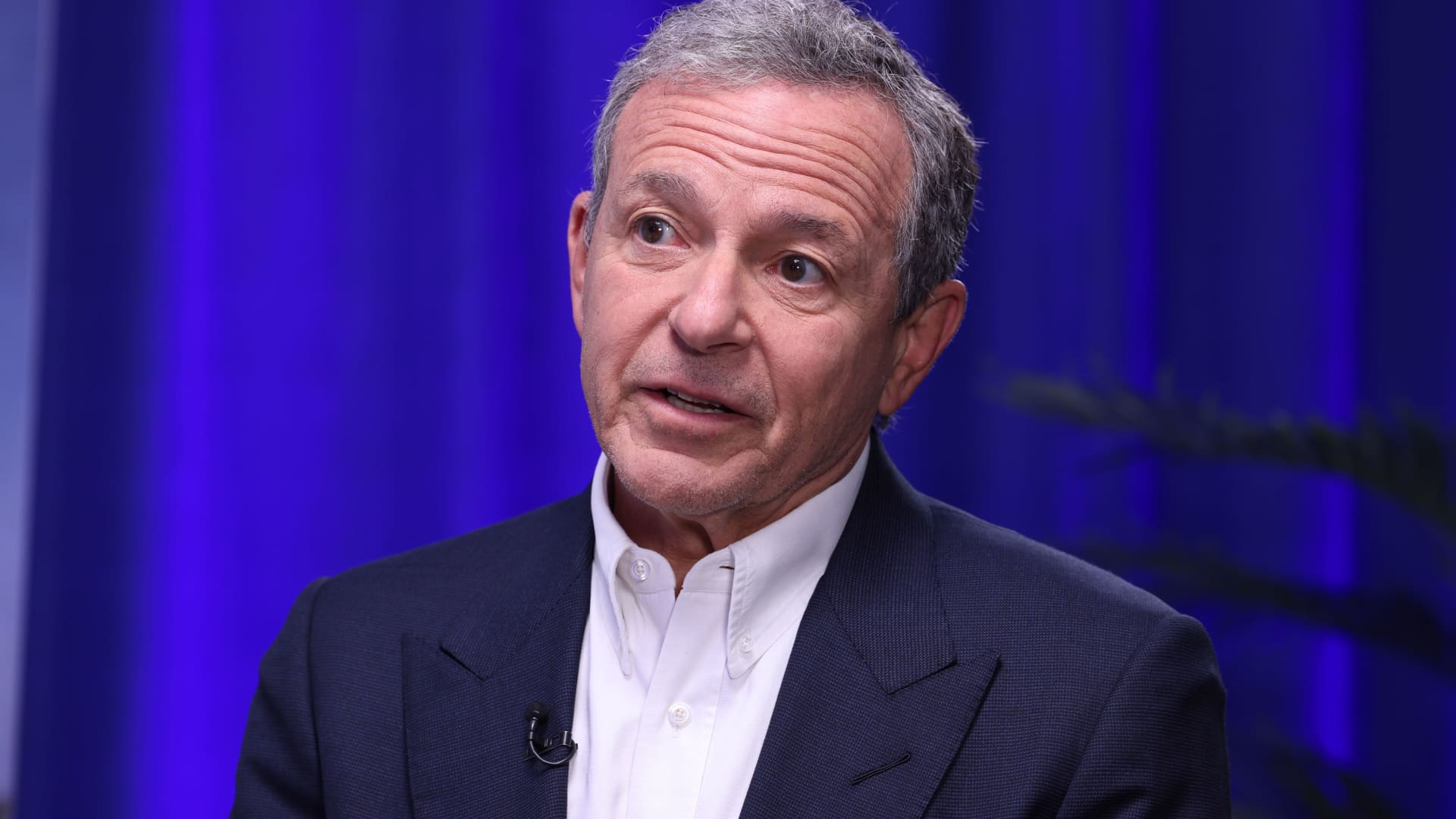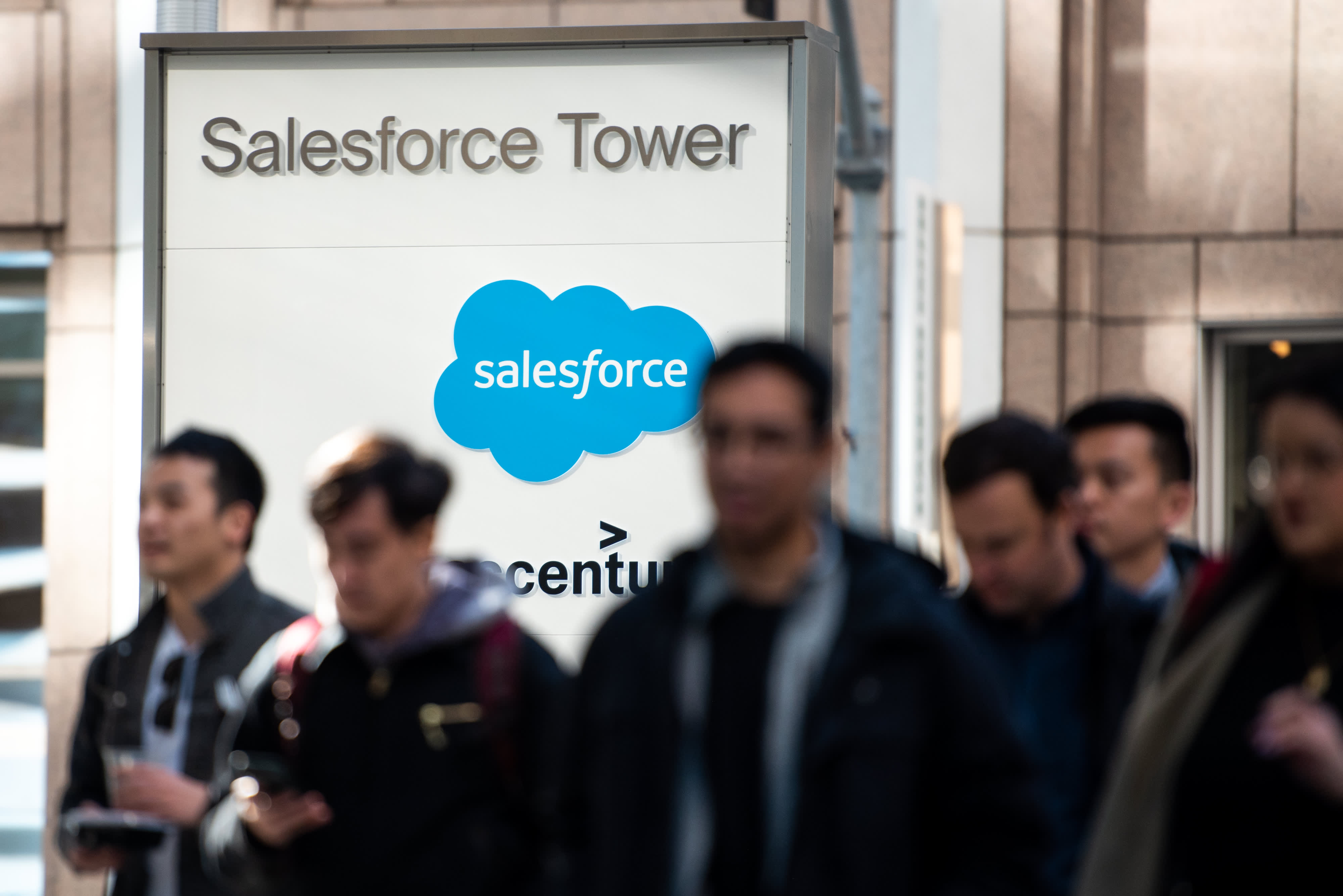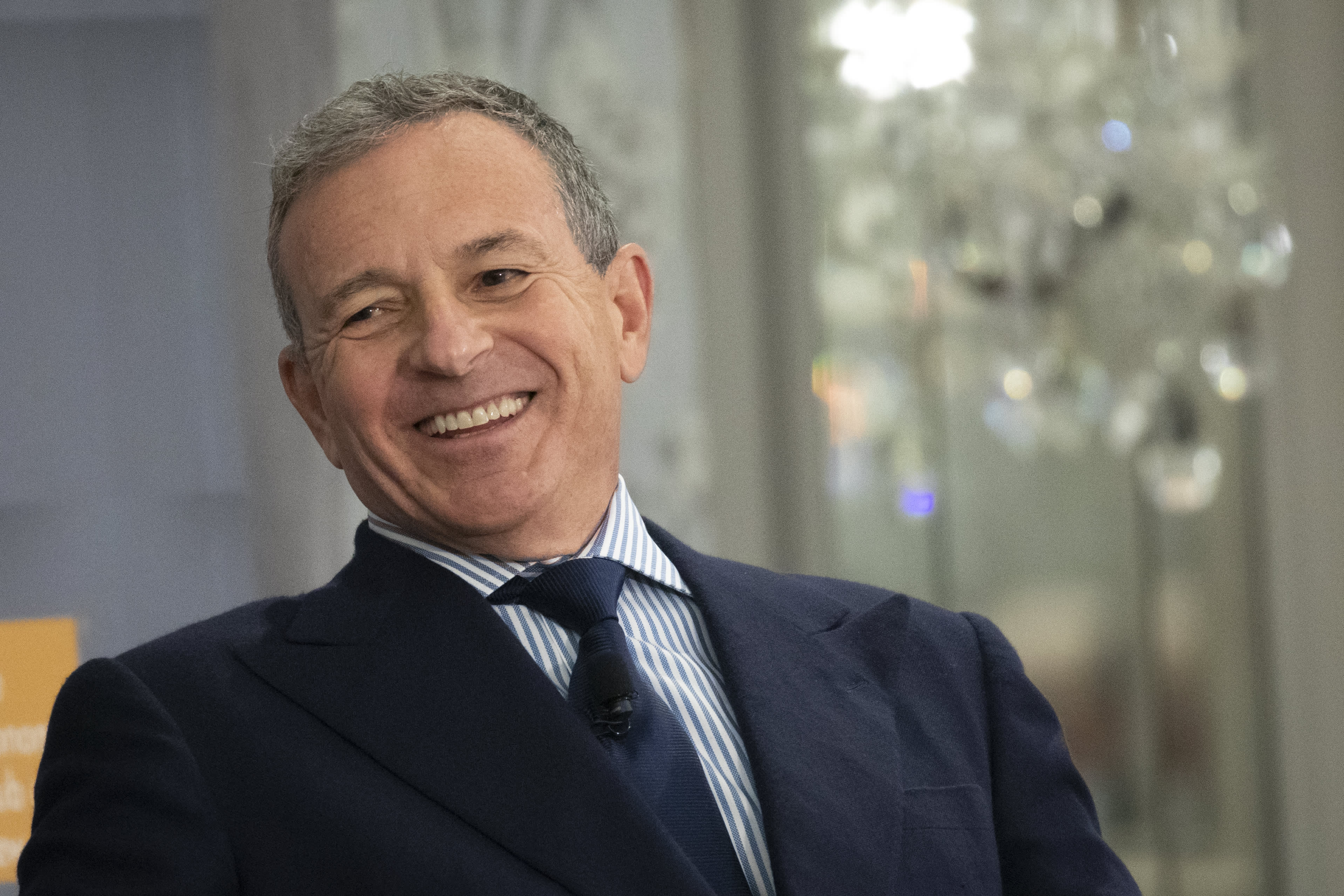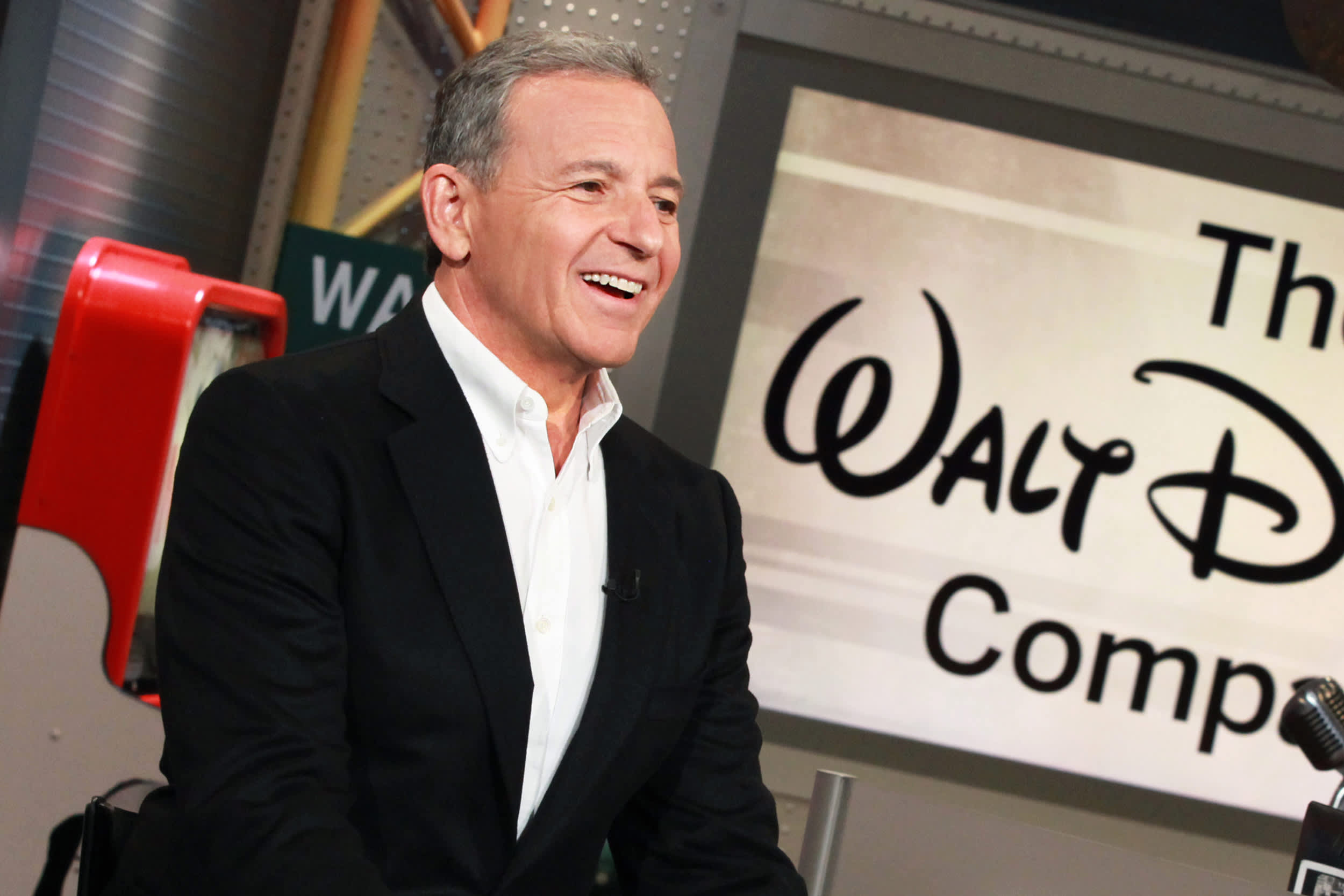Disney CEO Bob Iger’s apparent openness to selling Hulu marks a stark reversal in strategy for the company — and an even more surprising shift if Iger sells the streaming service to Comcast.
Iger said Thursday in an exclusive CNBC interview with David Faber that “everything is on the table” with regard to Hulu’s future.
related investing news
“We are intent on reducing our debt,” Iger said. “I’ve talked about general entertainment being undifferentiated. I’m not going to speculate if we’re a buyer or a seller of it. But I’m concerned about undifferentiated general entertainment. We’re going to look at it very objectively.”
Disney currently owns 66% of Hulu, with Comcast owning the rest. The two companies struck a deal in 2019 in which Comcast can force Disney to buy (or Disney can require Comcast to sell) the remaining 33% in January 2024 at a guaranteed minimum total equity value of $27.5 billion, or about $9.2 billion for the stake.
Just five months ago, then-Disney CEO Bob Chapek said he’d like to own all of Hulu “tomorrow” if he could. Chapek’s strategy revolved around eventually tying Hulu together with Disney+ to give consumers a “hard bundle” option in which viewers could watch programming from both the family friendly Disney+ and the adult-focused Hulu. Comcast’s stake in Hulu prevented Disney from moving forward with his plans.
“I would like nothing more than to come up with that solution for an early agreement,” Chapek said in a September interview with CNBC. “But that takes two parties to come up with something that is mutually agreeable.”
Chapek held a conversation in 2021 with Comcast CEO Brian Roberts to try to escalate the sale of Hulu, according to people familiar with the matter. Roberts floated a number of possible ideas, including Disney selling ESPN to Comcast, said the people, who asked not to be named because the discussions were private. No substantive conversations have occurred since, the people said.
Despite the shrinking pay-TV subscriber base, ESPN and many cable networks still rake in a lot of profit, something Disney wasn’t willing to give up, especially as it helps to fund the streaming business, the people said. Iger said this week that while a spinout was considered in his absence, it was concluded ESPN should stay with Disney. He said discussions about a sale were not taking place.
Another proposition floated to Disney was to have Comcast buy out Hulu. Comcast executives believe Hulu could supercharge its streaming efforts beyond Peacock, the company’s flagship streaming service, according to people familiar with the matter. They remain open to a variety of possibilities with Hulu, the people said. Peacock has about 20 million paying subscribers. Hulu has about 48 million subscribers. Both services are only available in the U.S. and U.S. territories.
Spokespeople for Comcast and Disney declined to comment.
Comcast executives walked away from those discussions resigned to taking Disney’s money in 2024 rather than gaining full ownership of Hulu, as CNBC reported in September.
Iger’s shift
Those circumstances may have shifted with Iger’s return. It’s possible Iger’s comments Thursday were just posturing. Threatening to be a seller of Hulu rather than a buyer may lower the price of the streaming asset, which would behoove Disney if it were to actually buy the 33% stake from Comcast.
Iger has previously championed Hulu as part of Disney’s strategy to offer three relatively low-priced services (Disney+, Hulu and ESPN+) rather than one mega-product that would likely be the most expensive streaming service. His thinking had been that giving subscribers too much content in one product may lead to what happened with cable TV — consumers begin feeling they’re paying too much money for content they’re not watching.
Selling Hulu would unwind this strategy, and it also may lead to cancellations of Disney+ and ESPN+. Disney has pushed its bundle of the three services for $12.99 per month (with ads). That’s about a 50% discount to buying the three services separately, which would cost nearly $26.
Still, publicly acknowledging Disney could be open to selling Hulu is a bold move. It puts Hulu employees on high alert and adds uncertainty to Iger’s own company. Iger’s comments may also be meant to draw a reaction from shareholders.
Competitive dynamics
Iger’s Hulu commentary also challenges one of his long-held edicts: don’t strengthen Comcast at Disney’s behest.
When Iger acquired the majority of Fox’s assets for $71 billion in 2019, one of his primary motivating factors was to make sure Comcast didn’t acquire a majority stake in Hulu. Activist investor Nelson Peltz, who Thursday dropped his proxy fight to get a Disney board seat, had been arguing that Iger dramatically overpaid for Fox. Iger’s defense of that deal was passing on it would have strengthened Comcast and weakened Disney in the streaming wars, according to people familiar with his thinking.
Competitive tension between Comcast and Disney isn’t new. Roberts made a hostile bid to acquire Disney for $54 billion in 2004. Previous NBCUniversal CEO Steve Burke left Disney to come work for Roberts in 1998. In a streaming environment, Disney’s products take eyeballs and subscription revenue away from Peacock, and vice versa.
Still, Iger and Roberts have a strong working relationship, according to people familiar with the matter. Iger even spoke at an internal NBCUniversal event last year.
Both companies will need to work closely together to agree on any conclusion for Hulu. Even if Disney buys the remaining stake of Hulu, the sides must agree on fair market value. Iger’s comments Thursday may be the starting gun on what could be months of negotiations to follow.
WATCH: Watch CNBC’s full interview with Disney CEO Bob Iger
Disclosure: Comcast owns NBCUniversal, the parent company of CNBC.




